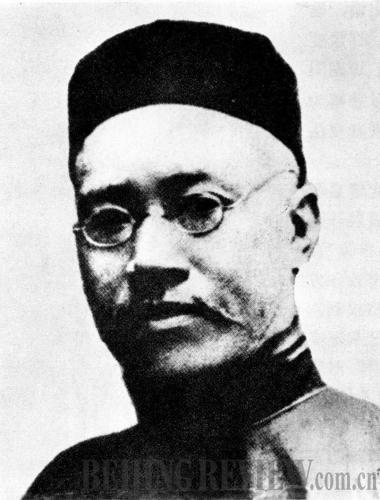|
 |
|
YAN FU (XINHUA) |
For more than 100 years, Darwin's theories and the work of Evolution and Ethics have influenced several generations in China, said book reviewer Dong Lili.
In the 1970s, Cao Juren, a well-known Chinese scholar, said he had read more than 500 Chinese authors' memoirs over 20 years and almost all of them mentioned they had read Evolution and Ethics.
In December 1897, when the Chinese edition of Evolution and Ethics was published in Tianjin, it had a huge impact socially and became a vogue in China's intellectual circles. Kang Youwei, a noted Chinese scholar and leader of the Reformative Movement (1895-98), praised Yan as "the first person to introduce Western knowledge." Another Reformative Movement leader, Liang Qichao, became an important communicator of Darwinism, influenced by the work of Evolution and Ethics. At that time, Mao Zedong, former leader of the People's Republic of China, was young but also began to understand Darwin. Years later, he founded a youth organization with the aim of "reforming China and the world."
"Of course, it was Karl Marx who finally provided the theoretical basis that led the Chinese out of their difficult position, but Darwin also contributed to the result. He not only provided a theoretical basis for China to end feudalism but also created the basis for Marxism to enter China," Dong said.
Image of a scientist
"We memorialize Darwin in order to not only express our respect but also derive food for thought and enlightenment to improve scientific development and innovation in our own country," said Lu Yongxiang, President of the Chinese Academy of Sciences (CAS).
Friedrich Engels even mentioned Darwinism and Marxism in the same breath. He said, as Darwin discovered the law of development of organic communities, Marx found the law of the development of the history of mankind.
"Darwin's theory of evolution regards humankind as a link in natural evolution, which corrects people's opinions about nature and the relationship of humans and nature, laying down a basis of knowledge and epistemology for later ideas of sustainable development, environmental protection and even a scientific outlook on development," Lu said.
Chen Junyuan, a paleontologist at the Nanjing Institute of Geology and Paleontology of the CAS, opened a course on the theory of biological evolution at Nanjing University. He says the course contains new interdisciplinary exploration and thought.
In 1921, Chinese zoologist Bing Zhi (1886-1965) set up China's first department of biology at Nanjing Normal University. His interest in biology came from Darwin's theory of evolution. When he was 18, he entered Peking Imperial University, the highest institute of the late Qing Dynasty. At the institute he read many scientific books from Western countries.
Han Xuewen, a doctor of biology, said he always uses Darwin as a model in conducting research. "Darwin is a careful observer. Careful observation, deliberate thinking and scientific research methods were the bases of his success," he said.
He said traditional life science focused on observing, describing and classifying superficial changes of life, but Darwin's theory put an emphasis on probing the relationships and systemic laws of the diversity of life and initiated the method of proposing scientific hypotheses.
"Darwin's theory of evolution seems simple because of its popular language," said Chen Caigang, a college student who became determined to learn biology or archeology when he read On the Origin of Species. "In fact, the theory is profound," he said.
"A curious aspect of the theory of evolution is everybody thinks he understands it," said Jacques Monod, the French scientist who was awarded the Nobel Prize in Physiology or Medicine in 1965.
"Thanks to Darwin's efforts, the theory of evolution has been accepted by the public but few actually understand the real meaning of the theory," said Wang Yuan, Director of the Paleozoological Museum of China.
"It's terrible the process of the theory of evolution entering China did not cause any great argument," said Li Daguang, a professor with the Graduate University of the CAS. "Argument does not mean random negativity but rather useful scientific discussion. I believe that the process of discussion is more valuable than the theory of evolution itself." | 